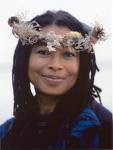20 September 2008
Dualities faced within the Chinese Culture (World Literature)
Characterized by turbulent changes in the economy, social structures, industry, and politics, the Chinese Pre-Revolutionary Era initiated a period of transition from the Ming to the Qing dynasty and then to the present day Republic of China. Subsequent and concurrent to the Chinese Post-Revolution, the state of China evolved into a new and compelled state. While reading the Introduction to Chairman Mao would not be Amused and classroom handouts on the Anthology of Chinese Literature, the reader is enabled to deduce certain aspects of Chinese poetry by examining Chinese history.
The traumatic Ming-Qing dynastic transition forced the domains of history and literature into a protracted and tortuous process. The questioning how and why the Ming dynasty fell dominated early Qing Literature. This was an extraordinarily creative and vibrant time of Chinese history and literature. With exacerbated and strained socioeconomic dynamics, political and social unrest soared to commonplace status and the birth of the new Chinese era ensued, the Post-revolutionary Era.
As self reflection on the loss of identity and individuality became widespread, Chinese poets began to emphasize the individual and reject the oppressive society of the state. Wu Wei-ye, Wen Yiduo and Bai Qui were poised at the forefront of the realm in poetic freedom inspired by social and political hardships through the metaphors of nature. They exemplified the Chinese literature across the ages. Their works epitomized the ideas, thoughts, and suggestions of the evolution of China as a nation.
For the reader to critically and analytically explore these poets, the reader must explore the Chinese literatures as it relates to history as well investigate the dualities expressed in the literatures. These poets possessed agendas that dealt with the thoughts and feelings of the common man, social and political reform, and the rights of mankind. Wei-ye, Yiduo and Qui exemplified the poets of China because they were shaped by the turbulent times of the Chinese government and sought to use poetry to address the issues of the times.
Wei-ye epitomized a pre-revolutionary Chinese poet because of his simple poetic practice and his evaluation of self and nature. Surrounding the period of the early Qing conquest, he was a well known poet. His dialogue was cross-generational, contemporary and forward-looking. During a time of war while Wei-ye and his family are fleeing from the invading Qing army, “Escaping the Fighting (fifth of six)” displayed poetic freedom in voice. Poetically, the poem displayed opposite spectrums of thought, dualities.
Influenced by a reader’s awareness of social injustices, disruption of nature and an awareness of self, the poem spoke to the audience both broadly and intimately. The narrator forced the reader to view his present state analytically and methodically. The presented a sense of desire for home. “Escaping the Fighting (fifth of six)” illustrated a narrator who was traveling on a boat, with many others, at night.
The narrator scorns the leaders who have allowed this war to happen. He states “Woe to you who made plans for our state / you have lost us half our rivers and hills” (ll. 7-8). Those who should protect them are “put [ting] up no fight” (l. 12). The narrator is distraught and cries “What have I done in this life / to live in such times of anguish and ruin” (ll. 15-16). Thinking on past times, the narrator states “In bygone days I roamed all the land / I have come at last to the Five Lakes’ shores / Wearing hemp sandals and used to flight / on hard times fallen, a simple common man” (ll. 16-20). The duality of freedom and restriction is prevalent. Nature provides a place of comfort but also a place that houses his torment.
In the poem the imagery moves back and forth from a serene environment to the devastated village beyond his horizon. While on the river the people are free to express themselves for a moment, The narrator stated they “…lifted oars and drifted midstream / sang bravely to winds that broke up sound / Not that Nature’s Moat could not hold / but constant depravities worked this grief” (ll. 3-6). Supposing to protect the Southland against invasion, the “Nature’s Moat” symbolized the Yangzi River.
By clinging to poetic freedom, Wei-ye acknowledged nature as a paradox. The river was in place to protect them and gave voyage to their destroyers. The reader surmised Wei-ye as a unique and fervent representative of the Ming dynasty who beckoned the reader to feel his exacerbated circumstance.
Being born almost three hundred years later, Wen Yiduo represented a poet near the end of the pre-revolutionary period in Chinese literature. In “Dead Water” Yiduo made claims to the past. With the passage of time the consolidation of the Qing rule and censorship determined how the fall of the Ming dynasty was remembered, imagined and represented, Yiduo represented the poets of this era as they tried to base their poetry on past models and make them meaningful for the present time.
The dead water was symbolic of the state of China. The people were desperate and hopeless. Realizing the lack of new ideas, the narrator stated “Here is a ditch of hopelessly dead water / No breeze can raise a single ripple on it / Might as well throw in rusty metal scraps / or even pour left-over food and soup in it” (ll. 1-4). This stanza makes a powerful statement on the times of China.
Unlike Wei-ye’s poem a ray of hope had sparked the era, the narrator explains to the reader “this ditch of hopelessly dead water / may still claim a touch of something bright / [and] the dead water will croak its song of delight” (ll. 13-14, 15). Poetically, the poem displayed a duality of what was potentially dead had life and could potentially live again. The poem appealed to the use of nature and natural elements to symbolically stimulate the reader. Despite the narrator losing hope in the last stanza, the reader is stimulated to believe that a new era is approaching and a new social state is on the verge of beginning.
Bai Qui epitomized a post-revolutionary Chinese poet in his poetic practice and evaluation of man and nature. “Moth” was a cautionary tale. The narrator described a silkworm eating his heart. The silkworm lived in darkness and there is where he had his most meaning in life. The silkworm was not content with his circumstances. He wanted something that he did not have and had not achieved in life. The narrator explained to the silkworm that if he went too far into the light it may burn him and not be as satisfying as the silkworm would have thought. The world was blindingly bright. The narrator argued that if one is not prepared the light hinders them from finding their way.
In the end the silk worm seeks the light and is incinerated in the attempt to be free. The reader deduced the true meaning of the poem. The silkworm symbolizes the people of China. The narrator represents the Chinese state, China. The state is the narrator telling the people that freedom is not what it appears to be on the surface; but, the people begged to differ and chose freedom. The people would rather die trying to reach the light than to stay in darkness and never experience life. The duality is described in the tragedy of losing one’s life; life and freedom are gained.
To reiterate, Chinese writers used nature as metaphors and dualities to describe the state of individuals in relation to the state of China. These poets thrived at a time of turbulent change. The Chinese Revolutions gave way to intense emotions that fueled the literary world. At the forefront of these changing times were poets like Wei-ye, Yiduo and Qui. They epitomized the mood of the Revolutions in their poetic practice and its use of nature as metaphors. Urging mankind to embrace self and its relation to the state, their poetic freedom has compelled readers to learn that the ultimate duality exists in finding happiness through sadness. At present, China is an emerging world power. The drive is to become the best at whatever is available.
One can deduce that turbulent historical, political and socioeconomic times are the culprit for the successes of present day China. Despite the successes of China, disturbing dualities still exist. The duality of a land rich with economic opportunity still is subdivided with wide gaps in income from the urban to the rural communities; being rich but poor. Opting to keep the old elements of Confucianism as well as embracing elements of Western world, the present day Chinese government is the truest example of a duality.
Subscribe to:
Post Comments (Atom)









1 comment:
This was very informative and gave a lot of insight to a topic I have been ignorant about. It probably wouldn't hurt for me to understand the Chinese culture (its background) a little better as I have a nephew and niece who are half-Chinese.
I like your blog, it is very deep, well-written, and insightful.
Post a Comment